In forecourts, the sports and energy drink category is outperforming total soft drinks growing at 3.4% versus 2% meaning the category is worth £80.9m in forecourts alone. And as that data is from Synovate for just oil company-managed forecourts, it’s probably far greater than that.
According to Mintel data, the sports and energy category is expected to deliver 50% of soft drinks growth by 2015.
Red Bull trade communications manager, Tom Smith, comments: "The success of the category, and indeed Red Bull, has been delivered through a better consumer understanding of the role that energy drinks can play in their day-to-day lives. The purpose of energy drinks is to meet a need at a time when energy is required and this makes the category relevant to a number of different consumers across a number of different occasions. This could be an office worker needing a post lunch pick-me-up, a driver on a long journey, a sportsperson wanting to be at their best on the pitch, or a student studying into the night."
Synovate data states that in forecourts, sports and energy is by far the biggest segment of soft drinks, commanding a 40% share.
Category split
Smith says the category can be split into three sub segments: functional energy, such as Red Bull; refreshment energy such as Lucozade; and sport such as Lucozade Sport. Functional energy is the largest sub-segment commanding a 68% share. "Within sports and energy in forecourts, the top two brands Red Bull and Lucozade deliver 70% of value sales which shows that consumers look to the most recognisable and trusted brands when seeking energy."
There’s no doubting Red Bull’s popularity here the UK is the brand’s second biggest market after the US. Smith says Red Bull is the number one functional energy drink in the market, and it dominates the category in forecourts with a 44% share. He adds that the range of Red Bull SKUs all feature in the top 20 sports and energy products list as they all fit different usage occasions.
In addition to the 250ml can, there is Red Bull 355ml, Red Bull 473ml and the new Red Bull 330ml bottle, which Smith says was the number one new product in the category in the past year, giving consumers resealable energy.
Also available is Red Bull sugarfree which has all the benefits of Red Bull with only eight calories. It will be backed by £2m investment in 2012 focusing on the low calorie message.
There is a lot going on at Glaxo-SmithKline (GSK) with the Lucozade brand. First up, the company is targeting consumers aged 25-35 who are looking for a light energising drink with reduced calories, with its new Lucozade Revive. The company believes the launch will redefine the category and drive incremental sales through its naturally invigorating flavours, low calorie content and credentials as a healthier option.
Revive is available in two flavours: lemongrass with ginger. and orange with acai. However a third variety cranberry with acai is available exclusively to Tesco. The lightly sparkling drink contains B vitamins and just 50 calories per bottle. It has a premium positioning, with a recommended retail price of 99p for a 380ml bottle.
Lucozade Revive senior brand manager, Sophie Birrell, says: "Low calorie new product development, like Lucozade Sport lite, has been a key driver of growth in the sports drink segment and Revive is set for success by offering something completely new to consumers who don’t currently drink energy drinks."
The launch is supported by a £6.1m investment starting in April, and includes TV, outdoor, press, digital and extensive sampling activity.
Great British flavours
In addition to the launch of Revive, GSK is helping retailers capitalise on the expected demand for all things British this year with the introduction of two limited-edition variants.
These are Lucozade Sport in a summer fruits variant and Lucozade Energy in a mixed berries variant. Both lines feature Union Jack packaging to create strong shelf stand-out.
Suzy Smith, marketing director for Lucozade, says: "We know that consumers buy more sports drinks when there are big sporting events on and this year will be no exception, especially with the Olympics.
"We have a proven track record of introducing winning flavour innovation that drives significant incremental sales. We are therefore confident that consumer demand for our British inspired limited-edition variants will be huge and we are encouraging retailers to stock up now and throughout the summer to maximise sales."
Meanwhile, Britvic and PepsiCo UK say that Mountain Dew Energy has added £6.4m to the energy category since its arrival in the UK in May 2010 (Kantar/Nielsen data). The brand is now worth £18.3m here. The companies say the success of the drink is not only due to its eye-catching pack design and great taste, but also to the fact that many retailers have utilised its eye-catching point-of-sale material to make it highly visible to shoppers. Awareness levels of Mountain Dew Energy have also been driven by marketing investment which has seen a significant presence in the online world with the brand’s Facebook page appearing in the top 15 food and beverage pages in the UK.
This year will see the distribution of more attention-grabbing point-of- sale and Britvic plans to increase distribution of the drink via the brand’s sales force. Maria Kypraiou, Mountain Dew senior brand manager at Britvic, comments: "Mountain Dew Energy offers the perfect on-the-go energy boost, appealing to 18-24-year-olds with its youthful personality and vibrant design. The energy and glucose segment has been in growth for some time and 64% of Mountain Dew Energy sales are incremental to the energy category (Kantar), showing that the brand has had a real impact since its launch. We know that clearly signposting Mountain Dew Energy in-store really gives sales a boost, which is why we’re encouraging retailers to use point-of-sale material."
Britvic and PepsiCo are also repositioning Gatorade as the sports nutrition range of choice for athletes with the launch of G Series Pro. Each product has been developed to cater for specific needs. G Series Pro 01 Prime is a pre-game fuel liquid which comes in a 118ml pouch. It is designed to be taken 15 minutes before activity. G Series Pro 02 Perform available in both powder format and ready-to-drink offers consumers a blend of fluids to help rehydrate, replace sweat loss and fuel working muscles.
G Series Pro 03 Recover is ideal for use 30 minutes after activity to help support muscle recovery and replace electrolytes lost during workout or competition.
The launch is supported by a ’Game changer’ marketing campaign in the health and sports press.
Monster success
A big-can brand that’s going great guns in the forecourts is Monster, which is distributed by Coca-Cola Enterprises (CCE). Monster business director Ed Woolner says the drink has contributed £1.37m in incremental sales equating to 45% of the category growth in managed forecourts (Synovate data).
"Total Monster energy value sales have grown 48%, outperforming the category, making Monster the fastest-growing energy brand within fuel. Our lead SKU green/original continues to show phenomenal growth up 59%. And Ripper is up 62%."
Woolner’s message to forecourt retailers is that consumers are looking for more than just one SKU. And right on cue, Monster is this month launching a Rehab variant. It’s a combination of tea, lemonade, electrolytes and "the bad-ass Monster energy blend".
Woolner says it quenches thirst, hydrates like a sports drink and is the perfect choice after a hard day’s night. "Within only two months of being in the market, Rehab smashed its way to being the seventh biggest energy drink SKU in the States (Nielsen data)," he says.
In the UK the product line-up includes: Monster energy the original ’twice the buzz’ energy blend which delivers over 50% of Monster sales; lo carb all the taste and buzz of Monster with a fraction of the calories; ripper and khaos the juice hybrid range offering 50% juice 100% Monster; and Monster x-presso a coffee/energy offering which Woolner says has opened up the morning drinks’ consumption occasion to the energy category.
"Every Monster product is designed to deliver customer sales and profits through market-leading product development rewarding loyal energy drinkers and attracting new consumers into the category," he adds.
He believes appropriate merchandising is vital to ensure the continued increase in energy category sales.
"At Monster, we believe by stocking the full range and using our point-of-sale, you can bring new consumers into the category. Ensuring chilled availability of the full Monster range at the right price and exciting consumers through our point-of-sale have to be key priorities."
According to Nielsen, CCE’s Relentless is the third biggest energy brand in the sector, worth £61m and growing at 10%. It is also the number-one selling 500ml canned energy drink.
The current line-up includes origin, inferno, immortus, devotion and sugar-free libertus.
Last year CCE launched Powerade Energy, described as the first soft drink that provides ’Dual Energy’. It contains fast-absorbing glucose plus caffeine to help deliver energy and focus as well as a balanced blend of carbohydrates plus caffeine to help sustain performance. As such the drink is designed to help provide additional energy to people undertaking intense physical activity.
CCE says the product is driving incremental category growth with strong trial and repeat purchase 74% of which has been incremental (Nielsen).
The lightly sparkling drink comes in two pack sizes: 500ml and 375ml PETs; and two flavours sparkling berry and sparkling orange. It contains 5% real fruit juice, as well as natural flavours and no artificial colours.
Stuart Agates, head of energy at CCE, comments: "AC Nielsen estimates the category opportunity for ’sustained energy’ drinks is up to £500m and we are confident that with this great tasting and functional innovation from Powerade we can help the Energy sector to continue to build strong momentum."
While the energy drinks market is enjoying double-digit growth, according to the latest IRI Data, over the past 12 months the No Fear brand has grown by over 218%.
Neal Haworth, brand manager for No Fear Extreme Energy, says the product’s high-impact branding and attention-grabbing logo really make it stand out on-shelf and appeal to its core target audience of males aged 16 to 24 years.
"The drink comes in a 485ml can, which fits standard car cup holders. Manufactured with a re-sealable top, drivers are able to keep the can firmly closed while their car is moving, reducing spills and wastage.
"In addition, resealing the can after a sip means the drink inside will stay fizzy for up to 24 hours."
But he says the fact that it’s a resealable can needs to be made obvious to the consumer: "Positioning the product just below eye level enables the buyer to see the key feature of No Fear. The design of the can makes it ideal for travellers to get a regular energy boost on the go, making No Fear the perfect energy drink for forecourts to stock.
Haworth continues: "We’re expecting continued growth, particularly for forecourt traders. As a nation we’re working longer hours and travelling more, which all takes its toll.
"This means when customers stop to fill up their car, they are looking for refreshments like energy drinks. Proactive forecourts are allocating more shelf space for energy drinks and we’re expecting that No Fear will continue to go from strength to strength with more and more seeing the opportunity for No Fear in their soft drinks range."
Big cans
AG Barr’s head of marketing, Adrian Troy, says drinks presented in the ’big can’ format are performing particularly well, with two of the company’s Rockstars’ variants featuring in the top eight must-stock lines in forecourts (Litmus data)."
"There are plenty of options available for forecourt retailers looking to meet the growing demand for 500ml, ’big can’ drinks. Rockstar launched with original and juiced 500ml variants in the UK in 2007. Since then the range has grown to include guava punched and energy cola."
Troy says the brand continued to grow with the introduction of Rockstar recovery, the UK’s first non-carbonated energy drink. It is formulated with all of Rockstar’s usual energy-giving ingredients plus electrolytes and a refreshing still lemonade flavour which Troy says makes it ideal for re-hydration and thirst replenishment.
Feminine touch
Rockstar then added a feminine touch to the category with the launch of Rockstar pink, the first energy drink to be targeted specifically at women.
"Rockstar pink made an immediate impact with a phenomenal first four weeks of sales surpassing all expectations," says Troy. "Containing just 10 calories and served in a 355ml can, it is proving popular with women seeking an energy boost without the associated high sugar content. The hot pink can creates impressive stand-out on shelf, which is particularly useful in forecourts where shoppers are often in a hurry."
AG Barr further expanded its energy drinks portfolio with the launch of Rockstar xdurance, a 500ml beverage designed to prepare shoppers for extreme mental and physical performance. Containing electrolytes, caffeine and Vitamin B complex, it is ideal for forecourt shoppers seeking an extra boost ahead of activity or exertion, including those about to embark on a long drive.
Moving on, and Simon Gray, managing director of Boost Drinks, says there has been an increase in the number of value option and own-label energy drinks but as a brand that has been established and successful for 10 years, retailers can trust Boost to deliver in terms of quality, value, keeping in touch with trends and driving consumer awareness.
"Through our ongoing programme of research and our successful social media activity, we keep in touch with our consumers on a daily basis we listen to what they want and then deliver it."
One example of Boost listening and responding to its consumers include the availability of resealable 500ml and 1ltr bottles but without the premium price tag for drivers and on-the-go consumers.
Gray continues: "We found there was a demand particularly from consumers in convenience and forecourt shops for resealable bottles that can be stored in the car for journeys when an extra boost of energy might be needed."
Gray says there are three Boost lines that all forecourt retailers should stock: Boost energy 500ml and 1ltr; and Boost energy sugar-free 500 ml.
Finally, we must mention the Pussy energy drink. Pussy drinks founder Jonnie Shearer says he thought up the name before the product.
"I wanted a name with instant standout that would get the product noticed. I didn’t have a massive marketing budget so I needed to create interest." And create interest he did, firstly in clubs and now in retail.
The Pussy energy drink is currently listed in around 400 forecourts in the UK including Aleef, HKS Retail, MPK Garages, the Fraser Group and the Carsley Group. Shearer believes Pussy is a "fantastic" brand for forecourts to list: "We increase the size of the category as a lot or people don’t like the traditional energy drinks’ taste and much prefer the taste of Pussy which is 100% natural.
"We will not cannibalise other energy drink sales and we offer a great margin for retailers as the drink is 100% natural so we can demand a higher price, typically £1.34 a can. Once Pussy is on-shelf, the name will get people to try it. And once they’ve tried it, people love the taste."
retailer view
Joe Baker, Abbeyside Filling Station, Selby, North Yorkshire
"For energy drinks we stick to Red Bull, Monster and Relentless. All three brands are massive sellers.
"We stock the 250ml Red Bull; we tried the larger can but it wasn’t popular. With Monster and Relentless we tend to stick to the original varieties we don’t have a lot of space for any more. Monster and Relentless are definitely aimed at younger consumers. I’ve been to music festivals and their branding is everywhere. Red Bull is popular with older people.
"We also stock sports drinks Lucozade and Powerade we are right next to a gym so we are in an ideal spot to sell these. Energy drinks are quite expensive we sell 250ml Red Bull at £1.59 but we have them on offer when we can and they fly out."
ENERGY FACTS
The sports/energy drinks market was expected to have broken the £1bn barrier last year it was worth just £625m in 2006.
Energy drinks account for 81% of total sports/energy drinks sales apparently their function is easier to understand.
The majority of UK consumers think energy drinks are expensive for what they are however they are willing to pay for them.
59% of UK adults now drink energy/sports drinks. Drinkers are most likely to be male, aged 16-44-years-old.
Younger consumers (16-44-year-olds) are particularly attracted to the drinks’ energy-giving properties while older consumers (45-plus) say the main appeal is as a good-tasting alternative to other soft drinks.
The main barrier to people not buying energy drinks is that they say they do not need artificial energy. Other barriers include worries over calorie intake and concern about ingredients that may not be good for them.
Source: Mintel


















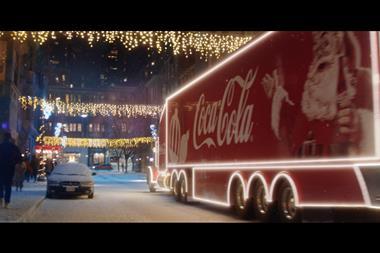
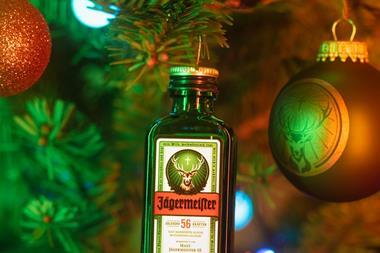
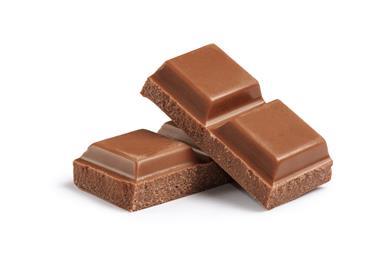
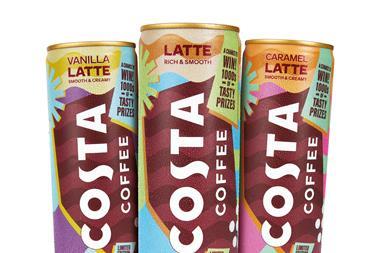
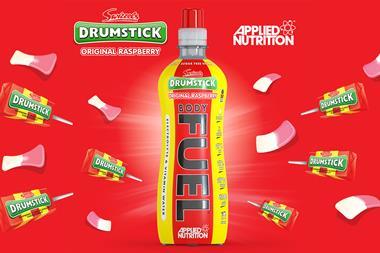
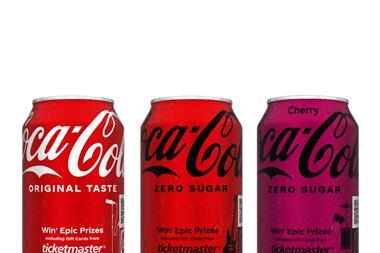
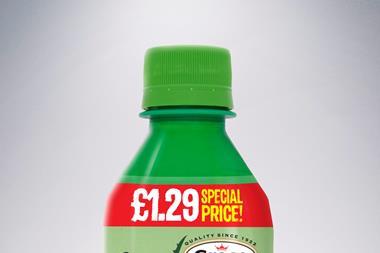
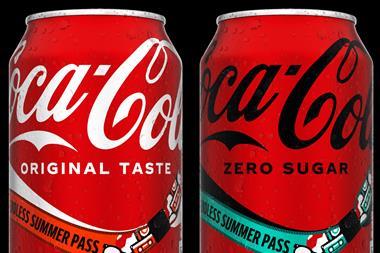
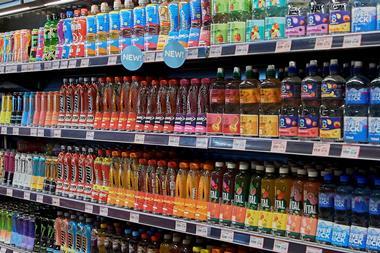
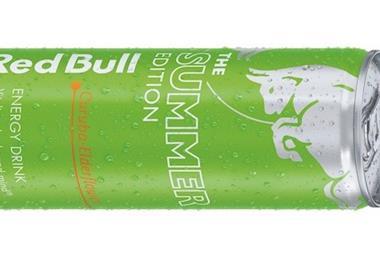
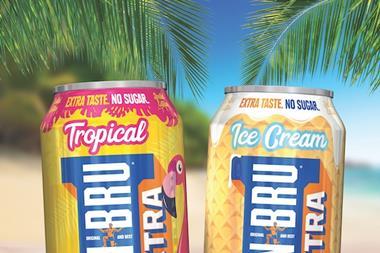
No comments yet